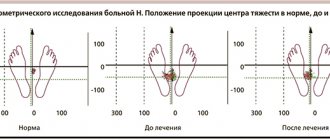Author: Elmira Davydova
A clinical psychologist is a person specializing in psychological diagnostics, counseling, and various types of psychotherapy. Studies mental phenomena and disorders through the prism of their relationship with various diseases. An applicant who loves biology, mathematics, and social studies can become a clinical psychologist. By the way, in 2021, the ProfGid career guidance center developed an accurate career guidance test. He himself will tell you which professions are suitable for you, and give an opinion about your personality type and intelligence.
- Courses
Short description
Clinical psychology methods are used in classical medical practice. This area began to actively develop at the end of the 19th century and is closely related to psychiatry. There are several sections of clinical psychology: psychotherapy, neuropsychology, psychosomatics and others. Clinical psychologists have in-depth knowledge of anatomy and medicine. The direction is wide-ranging, because specialists are responsible for the harmonious development of the psyche, adaptation, psychological support and rehabilitation of patients.
Education
You can get a diploma in your desired specialty at any higher education institution that has a psychology department. If you wish, you can go to study at the Russian National Research Medical University, St. Petersburg State University, or another university that trains specialists in a similar profile.
The Academy of Professional Standards also offers its services. Here, doctors and medical workers can undergo professional retraining and receive a certificate with the right to practice medicine. Training is conducted in full-time and part-time format using distance technologies. To undergo retraining in this area, you need a diploma in Psychology, as well as a medical education.
Features of the profession
Clinical psychologists most often interact with people who experience difficulties in issues related to adaptation, self-realization, and personality development. These processes depend on the social, spiritual and physical state of the patient. Clinical psychologists use the following methods:
- conversations, observation;
- psychophysical, anamnestic, biographical, experimental and psychological methods;
- studying the products of activity and creativity.
A clinical psychologist at a university studies a whole range of natural science disciplines, as well as the anatomy of the central nervous system, neuropsychology and neurophysiology, psychodiagnostics, etc. Certified specialists perform the following types of work:
- collecting anamnesis, performing psychodiagnostics;
- development of measures aimed at correcting the patient’s psycho-emotional state;
- providing assistance in self-identification, social adaptation, and establishing family relationships;
- preparing a drug treatment regimen if necessary;
- conducting a psychological examination;
- social activities within the framework of assistance to vulnerable segments of the population: children, disabled people, etc.;
- drawing up conclusions based on the results of the work performed.
They work with different groups of people. They provide assistance to patients who have suffered psychological trauma, suffer from acquired or congenital diseases, and feel the need for social adaptation, for example, after serving a sentence in prison. Please note that clinical psychologists do not work with severe mental conditions: schizophrenia, bipolar affective disorder and others.
General information
The prerequisites for the development of clinical psychology were the studies of French and Russian psychiatrists at the end of the 19th century. A large number of scientists devoted their scientific works to psychological topics.
The first psychological laboratory was founded on Russian territory in 1885, where a large number of studies were carried out. In addition, the works received during the Great Patriotic War provided a great impetus to the development of this industry. The accumulated experience of both foreign and domestic scientists served to form a separate profession at the intersection of medicine and psychology, namely the clinical psychologist.
A clinical psychologist is a specialist whose activities are aimed at studying medical and psychological problems, namely diagnosing and correcting various mental disorders. Such specialists can be both theoreticians and practitioners. The second direction is considered more promising and involves working with one of three categories of patients:
- Somatic patients are people suffering from physical illnesses. The essence of the psychologist’s work in this case is to identify the client’s psychological difficulties and help change his condition for the better. Also, this kind of specialist takes part in preparing patients for operations, painful procedures and other therapeutic measures.
- Mental patients are people suffering from mental disorders. Often, a clinical psychologist is invited to work in psychiatric clinics to conduct diagnostics and psychotherapeutic activities with patients.
- Healthy people. A clinical psychologist, like any other psychologist, can provide private services to clients who have various difficulties, even if they do not fall within the scope of a particular disease.
Thus, a specialist can work both in a clinic together with a doctor, and in other institutions as a humanitarian specialist.
When choosing this type of professional activity, you need to know that although this profession can be obtained by graduating from a medical higher education institution, the specialist is not a doctor and, accordingly, does not have a license to provide medical services. Despite this nuance, the profile in question has many advantages. Namely:
- The ability to understand people, to understand them better than they understand themselves;
- The ability to find a common language with an interlocutor, talk with him without embarrassment, distinguish when a person is telling the truth or lying;
- Contribute to the provision of assistance to the patient, observe positive trends in the lives of clients from the work done;
- A wide range of areas of application of your skills and abilities;
- Possibility of starting your own business.
Just like any other profession, the work of a clinical psychologist has a number of disadvantages:
- The influence of the patient’s negative emotional states;
- Due to the fact that not all clients will be able to be helped, this may lead to disappointment from failures;
- Emotional tension;
- Over time, the development of such a quality in oneself as a certain kind of insensitivity.
It is worth noting that those school graduates who do not have diseases included in the list of medical restrictions can choose this type of professional activity:
- Virus carriage.
- Neuropsychiatric diseases.
- Chronic migraines.
- Speech, vision and hearing impairments.
- Cardiovascular diseases.
- Problems with memory and attention.
Pros and cons of the profession
pros
- Clinical psychology is a popular field; patients of any age are interested in the services of these specialists.
- A huge selection of forms of professional activity: private practice, corporate or scientific work, webinars, etc.
- High level of income, which directly depends on the activity and professionalism of the clinical psychologist.
- The profession is suitable for people with disabilities (impaired function of the upper and lower extremities), because services can be provided in the format of Skype conferences.
Requirements for a specialist
The specialist should not have neuropsychic pathologies, cardiovascular dysfunctions, attention and memory disorders, as well as problems with hearing, vision and speech. A clinical psychologist must be professional, competent, and responsible. Interaction with patients involves the need to think systematically and logically. Such a doctor needs to understand the value of health, be capable of empathy and compassion, and constructive interaction with other specialists to solve common problems.
Place of work
Clinical psychologists will be able to find work in clinics, rehabilitation or specialized centers, and trust services. Hospices, orphanages, as well as correctional colonies, crisis centers, government agencies, etc. are interested in them. Often specialists are engaged in private practice, in which case they can serve as corporate or family psychologists, conduct webinars, Skype conferences, group trainings.
Branches of clinical psychology
- Psychosomatics. Aimed at identifying the patient’s somatic and psychosomatic problems and their origin. The section studies the relationship between such complex diseases as cancer and the mental factors that provoke them. A psychologist helps prepare the patient for difficult information about the diagnosis, accompanies him throughout the illness, prepares him for surgery, helps with rehabilitation, and so on. In addition, this section is devoted to the disorder - acute chronic mental trauma, which can lead to ischemia, peptic ulcers, hypertension, neurodermatitis, psoriasis, and bronchial asthma.
- Psychotherapy is a basic method for psychocorrection. Represents a set of methods and techniques that are used by a psychologist in therapy and in carrying out a number of changes relating to the psycho-emotional sphere of the patient, as well as his behavior and communication skills. Corrective measures are aimed at improving mood, well-being, and adaptive capabilities for development in society. Psychotherapy takes place both in a group and individually.
- Neuropsychology is a large separate discipline in science that studies the brain and central nervous system and their role in human mental processes. Includes psychiatry, neuroscience, and philosophical issues in achieving an understanding of how the human mind functions. Studies artificial neural networks, cognitive science. In Soviet psychology, experts considered the issues of cause-and-effect relationships of brain damage, localization of the disorder and changes in the psyche occurring at this time. Neuropsychologists studied such transformations in the functional characteristics of the psyche arising from brain injuries, investigated the location of the leading center of diseases and developed methods of rehabilitation, treatment, as well as the theory and methodology of the foundations for general and clinical psychology.
- Psychocorrection is the basis for psychotherapy. It is aimed at directly providing assistance to the patient. Forms not only a psychotherapeutic program, but also subsequent rehabilitation as a systemic medical and psychological activity. Psychocorrection allows you to restore your social status and return to society as a full-fledged member of it, thanks to a combination of pedagogical, medical, psychological and social procedures and activities. This includes mental hygiene, which studies the preservation and support of mental health, and psychological prevention - a set of measures that prevent the occurrence of a mental disorder.
5. Pathopsychology. He studies issues of mental disorders, disorders, violations of the objectivity of perception of the surrounding world, occurring due to destructive processes in the central nervous system. This section explores the patterns of dysfunction of mental processes in various psychopathologies in connection with the factors that contribute to their appearance, and also allows us to find effective methods of correction.
Drug therapy
A psychologist does not write out or prescribe funny pills. And sad ones too. Even medical. If he recommends accepting something, then he goes beyond his formal rights. In current realities, this does not mean that he is necessarily wrong, but you must understand that he is exceeding his authority. On the contrary, both a psychiatrist and a psychotherapist have the right to prescribe pills. In practice, the former, as a rule, limit themselves to only this, while the latter often refuse this opportunity, preferring treatment with words. On the other hand, both a psychiatrist and a psychotherapist have the right to use non-drug methods of influence (the same therapeutic conversations in all their diversity).
What awaits psychologists in the future?
What awaits psychologists in the future, will they be in demand and will the specifics of their work change? Interesting question. Experts predict an increase in popularity of this profession. Today it has become very fashionable to turn to specialists for help in solving psychological problems; perhaps in the future this practice will become a habit among Russians. The specifics of the work will, of course, change somewhat. Personal meetings will most likely be kept to a minimum, and consultations will be conducted primarily online through video communication or correspondence. Such methods of work have certain advantages - anonymity, erasure of territorial boundaries, accessibility and relative safety.
Where to go to work without experience
One of the disadvantages of the profession is the difficulty of choosing for a novice psychologist where to work at first. There are many vacancies on the market, but where they pay well, they are unlikely to hire an inexperienced specialist, and where they do, they have low wages and a busy schedule. There is no point in chasing a high salary at the very beginning; it is much preferable to gain experience. The more satisfied clients you have, the faster you will have your own account and high income. Many future psychologists, while still students, begin to work where established professionals practice, assisting them and contemplating all the pros and cons of the profession in all its glory.
As a rule, inexperienced specialists are willingly accepted into budgetary institutions - clinics, kindergartens and schools. Due to low wages, they do not stay there for long, gain the necessary experience and move on.
Methods
A clinical psychologist uses various methods and techniques for an objective and differentiated assessment of the client’s condition. Diagnostics helps a specialist to competently consider the variant of normal and pathological conditions for an individual person. He chooses one or another technique depending on each individual patient, signs of his mental disorder, level of education, and degree of mental development.
- The following methods are distinguished: Research of creativity;
- Experimental methods of psychology - standardized and original;
- Observation;
- Anamnestic method of collecting information about past diseases, past complications, causes of the current disorder;
- Conversation and survey;
- Biographical;
- Psychophysiological – EEG, for example.








